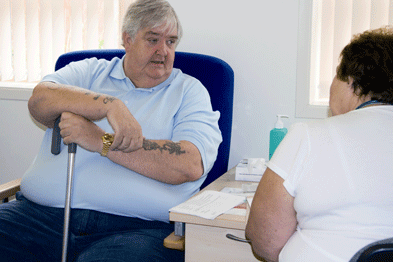COVID-19 Reports: Study Says That Older Westerners Already Have A Systemic 'Profile' That Makes Them Susceptible To Severe COVID-19
Source: COVID-19 Reports Sep 25, 2020 4 years, 7 months, 1 day, 15 hours, 30 minutes ago
COVID-19 Reports: A study presented at the ongoing ESCMID Conference on Coronavirus Disease (ECCVID, 23-25 September) indicates that the severe COVID-19 immunological profile, represented by changes in cell populations and circulating inflammatory proteins, is already partly present in older healthy individuals in the West especially in Europe. (Applicable to Northern America as well)

The study findings have yet to be published yet.
Co-author Dr Ozlem Bulut from Radbound University Medical Center, Nijmegen, Netherlands told Thailand Medical News, "Some of these dysregulations might not be a direct result of the infection but rather an underlying profile that is permissive to a more severe form of the disease."
It is already known that the majority of individuals, who experience COVID-19 caused by severe acute respiratory syndrome coronavirus-2 (SARS-CoV-2), present a mild, self-limiting respiratory infection and recover in a few days. However, the disease can also progress and cause a severe acute respiratory distress syndrome (ARDS) in around 10-15% of the patients.
Interestingly, the fatality rate of COVID-19 increases with age, reaching more than 20% in patients over 80 years of age. A hyperinflammatory profile and various dysregulated immunological processes are linked to disease severity, however, whether these are caused by the disease or play an underlying role in disease pathogenesis is not yet clear.
The study team investigated a series of immune cell populations and 28 circulating inflammatory markers previously linked with COVID-19 severity in two cohorts of healthy Western European individuals: the first one including 324 people with an age range of 18-71, and the second one including 452 people with an age range of 18-75.
Senior co-author Professor Mihai Netea, also of Radboud University Medical Center, Nijmegen, Netherlands, said, "After correcting the data for the sex of the participants, we observed that many inflammatory markers and changes in cell populations linked with severe COVID-19 correlate with age in healthy individuals.”
Some of the main parameters include changes to white blood cells including increased non-classical monocyte numbers, a critical decrease in T lymphocytes, particularly some types of CD8+ and CD4+ lymphocytes and naïve regulatory T cells, elevated circulating levels of monocyte chemoattractant protein 1 (MCP1) that induces immune cell accumulation in organs, osteoprotegerin (OPG) that may increase survival of certain cell populations, hepatocyte growth factor (HGF) that activates both immune and epithelial cells, and declined concentrations of receptor activator of nuclear factor kappa-Β ligand (RANKL/TRANCE). Interleukin-6, a marker of inflammation and one of the major biomarkers of COVID-19 severity, also increases with age in both cohorts.
The study team concluded "Age is one of the biggest risk factors of COVID-19 severity and fatality. Our results suggest that the severe COVID-19 immunological profile, represented by changes in cell populations and circulating inflammatory proteins, is already partly present in aged healthy individuals. Therefore, some of these dysregulations might not be a dir
ect result of the infection but rather an underlying profile that is permissive to a more severe form of the disease. In conclusion, the identified markers might explain the high susceptibility of older individuals to severe COVID-19 and inform efforts to prevent and treat the disease."
Thailand Medical News will cover further details of this study once the findings are published.
For more
COVID-19 Reports, keep on logging to Thailand Medical News.
